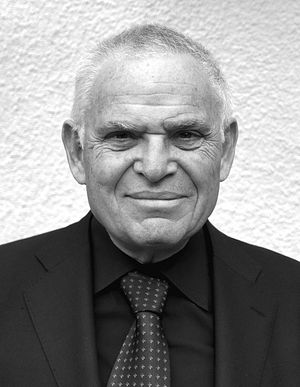Last week, The Guardian broke a piece of news that could fracture Kazakhstani-Russian relations. It was just a small nugget, a one-off, to get the reader interested. You’d be forgiven for missing it entirely. You’d be forgiven for paying it no mind.
But to those following the region – and to those in Astana and Moscow – the finding threatened a rupture within one of the Kremlin’s closest, if nonetheless strained, relationships. According to Thomas Meaney, writing in The Guardian, the Kazakhstani government contacted Edward Luttwak, a “self-proclaimed ‘grand strategist,’” at some point “just in the last 12 months.” Per Meaney, “The prime minister of Kazakhstan wants to find a way to remove ethnic Russians from a city on his northern border” – and so they reached out to Luttwak. Meaney then unspools a few thousand more words on Luttwak – on his efforts setting up an intelligence agency for an “Asian country;” on his work with Bolivian ranchers; on conferring with the Dalai Lama about relations with China – but only addresses Kazakhstan once more, in describing Luttwak’s forthcoming book on the country. (The book’s contents aren’t detailed, as it is apparently awaiting passage through “Kazakhstani censors.”)
There was nothing else on the topic. Nothing else on Kazakhstan, at some point over the past 12 months, apparently attempting to find ways to root out ethnic Russians from a certain city in ethnic-Russian-majority northern Kazakhstan. Nothing else about how the claim flies in the face of prior rhetoric, prior efforts, and prior relations; nothing else about how the move would decimate Kazakhstan’s relations with one of its closest partners, and provide Moscow precisely the impetus to turn its condescension and veiled threats into action.
The Diplomat attempted to contact Meaney for comment, but has not received a reply.
The claim, as it is, stands as fantastical as it does impractical. Not only has Kazakhstan attempted to cultivate warm, if independent, relations with Moscow, but Astana remains well-aware of the parallels the country presents with Ukraine, both demographically and geopolitically. The Kazakhstani government, unlike certain other post-Soviet states, has proved amenable to retaining the usage of Russian – as the language of “inter-ethnic communication” – and hemmed close to Moscow-led post-Soviet states, even to the country’s material detriment. Kazakhstan, after all, was one of the few countries to offer support for Crimea’s “return” to Russia.
And it’s not as if Kazakhstani Prime Minister Karim Massimov attempted to recruit Luttwak in, say, 1992, when Russia stood near the nadir of its external power-projection. According to Meaney, the request came at some point in 2015 – after Russia revealed itself to be more than willing to maintain its first-among-equals status within the post-Soviet sphere. If Luttwak and Meaney are correct, this means Kazakhstan – understanding full well Moscow’s willingness to fracture neighboring nations and flood border regions with materiel and troop support – still opted for one of the most egregious moves possible in terms of provoking Russia to react. It also means Astana attempted to recruit someone who, only a few months later, would let the plan slip to a reporter.
To be sure, it’s entirely possible Luttwak and Meaney are correct. Perhaps Massimov cast about for potential means with which Kazakhstan’s northern reaches could slowly shed their ethnic Russian populations – maybe not immediately, but over the course of years. It’s not as if tensions don’t exist; it’s not as if ethnic Russians in Petropavl, one of the primary Russian-majority cities, haven’t expressed undiluted support for Moscow over Astana. It’s not as if ethnic Russians in the region tend toward receiving less infrastructural support than ethnic Kazakhs, or as if reporters haven’t been castigated for simply asking questions about inter-ethnic relations. And it’s not as if the remaining ethnic Russian populations haven’t provided fertile ground for Russian nationalists to cite as reason enough to invade and annex northern Kazakhstan.
But even on the backs of these tensions, for Astana to broach the topic of physically expelling ethnic Russians during 2015 – it seems a bridge too far. Not that it’s impossible, per se. Just that it is remarkably improbable, and an extraordinary move that would all but guarantee Russian interventionism in northern Kazakhstan. Among all of the outsized claims in the profile – amidst the tales of working with Tongan groups to prevent Japanese dolphin poaching; amidst the reports that Luttwak has worked with “European governments … to root out al-Qaeda operatives” – the notion that Kazakhstan’s prime minister is seeking Luttwak’s help to “find a way to remove ethnic Russians” from northern Kazakhstan may well be the most fantastical.

































